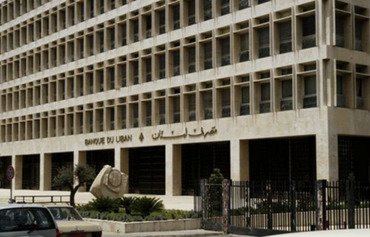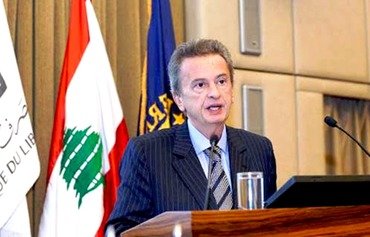Lebanese banks continue to comply with a Central Bank of Lebanon directive on fighting money laundering and terrorist financing, the Association of Banks in Lebanon (ABL) said.
This came in the wake of the June 12th explosion outside the headquarters of BLOM Bank in Beirut, one of the largest banks in the country.
The attack was widely viewed as an attempt to admonish the banking sector for its compliance with anti-terrorism financing laws, particularly the imposition of sanctions against institutions that engage in transactions with Hizbullah.
These sanctions had led to the closure of 100 bank accounts linked to the group's members, said Central Bank governor Riad Salameh.
In an emergency meeting on June 13th, ABL issued a statement denouncing the attack, which it said "hits the whole banking sector, and aims at weakening the economic stability".
"The ABL confirms that banks operate according to the best professional practices and within the prevailing regulations in the international markets, and are also subject to Lebanese laws in force and the provisions of the Central Bank circulars in order to preserve the interests of all Lebanese," the statement said.
Government, banks work together
On June 13th, Prime Minister Tammam Salam met with Salameh, ABL head Joseph Torbey and Finance Minister Ali Hassan Khalil.
The government and the banking sector agreed to support the measures to protect the financial system.
Khalil affirmed his "confidence in the measures taken by the Central Bank both locally and internationally to protect the Lebanese financial system, bolster its immunity and reassert Lebanon's financial reputation".
Speaking before the ABL board of directors, Salameh said the bombing "will not affect the circulars issued by the Central Bank, which is fulfilling its role in the interest of Lebanon", al-Mustaqbal newspaper reported.
Salameh said the banks are in compliance with standards that include "not engaging in transactions with names on the OFAC list" -- a reference to the April directives by the US Department of Treasury’s Office of Foreign Assets Control.
"Banks must co-ordinate with the Banking Control Commission in regard to condemned accounts that are required to be liquidated and closed out, while accounts that are under suspicion must be referred to the Special Investigation Commission," he said.
Banks adhere to strict standards
"It is not the first time that Lebanese banks have adapted to strict financial standards, as the banks have since 2001 been committed to implementing the anti-money laundering act and subsequent international laws issued to date," said former finance minister Jihad Azour.
"Non-compliance by Lebanon exposes the banks to losses culminating with closure of their accounts in correspondent banks," he told Al-Shorfa.
The banks implement the circulars they receive to protect their stability and the stability of depositors, Azour added.
The actions taken by the banks protect Lebanon and its financial reputation in the world, he said.
The implementation of Law No. 44 of November 2015 on anti-money laundering and terrorism financing is ongoing, he said, which "immunises Lebanon and its banks against any punitive action that may be taken against it and its banks and economy".
Drying up the resources of terrorism
"Banks after the bombing, as they were before it, will remain committed to combating money and terrorism financing, drying up its resources, and implementing the US law imposing sanctions on Hizbullah," said Kawthar al-Hanbouri, editor-in-chief of an economic website.
She was referencing the Hizbullah International Financing Prevention Act of 2015 (H.R. 2297) passed by the US Congress on December 18th, 2015.
"The banking sector will remain strong, monetary stability will continue, the Lebanese pound will remain steadfast and neither investors nor depositors will lose confidence in the banking sector," she told Al-Shorfa.
Al-Hanbouri said confidence in the banking sector remains steady as the sector has proven robust, despite political and security instability in Lebanon.
The sector has improved its performance despite the economic slowdown over the past five years, she said.
The assets of commercial banks totaled $188 billion at the end of April, she added, while private sector deposits amounted to $153 billion -- three times the size of the Lebanese economy.

![The Central Bank of Lebanon has been working to protect the Lebanese financial system, bolster its immunity and reassert Lebanon's financial reputation in the aftermath of a June 12th attack on a bank in Beirut. [Nohad Topalian/Al-Shorfa]](/cnmi_am/images/2016/06/22/5664-Lebanon-central-bank-600_384.jpg)






